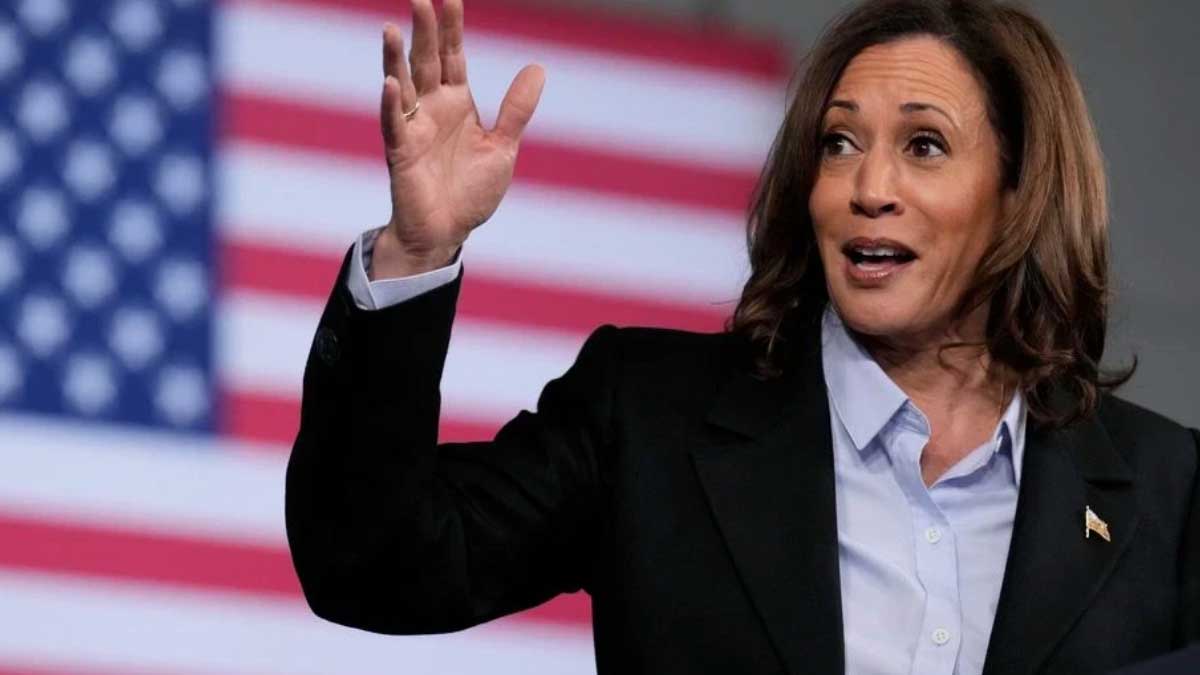- Home
- Billionaires
- Investing Newsletters
- 193CC 1000
- Article Layout 2
- Article Layout 3
- Article Layout 4
- Article Layout 5
- Article Layout 6
- Article Layout 7
- Article Layout 8
- Article Layout 9
- Article Layout 10
- Article Layout 11
- Article Layout 12
- Article Layout 13
- Article Layout 14
- Article Sidebar
- Post Format
- pages
- Archive Layouts
- Post Gallery
- Post Video Background
- Post Review
- Sponsored Post
- Leadership
- Business
- Money
- Small Business
- Innovation
- Shop
Recent Posts
Harris Proposes $50K Small Business Deduction

On Wednesday, Vice President Kamala Harris unveiled an ambitious proposal aimed at significantly enhancing tax deductions available to new small businesses for their startup expenses. This initiative is part of a broader economic strategy that Harris has been fleshing out in recent weeks. In her speech delivered in New Hampshire, Harris proposed increasing the current $5,000 tax deduction for startup expenses to a substantial $50,000. She characterized this proposal as “essentially a tax cut for starting a small business,” underscoring its potential to ease financial burdens on new entrepreneurs.
Under the new proposal, small businesses will have the flexibility to either spread the $50,000 deduction across multiple years or claim the full amount in a single year, contingent upon when they begin to turn a profit. This flexibility aims to provide a financial cushion during the critical early stages of business development. Harris also highlighted her administration’s commitment to simplifying tax filing for businesses. She drew a parallel to the streamlined process available for individual taxpayers filing standard deductions, suggesting that her plan would make business tax filing “cheaper and easier.”
As it stands, small businesses are entitled to a $5,000 deduction for startup costs, with the remaining expenses spread over a 15-year period, according to The Wall Street Journal. This current deduction covers various startup expenditures, including advertising, employee training, salaries for consultants and executives, and travel expenses associated with securing customers, suppliers, or distributors, as outlined by the IRS. Harris’s proposal aims to attract a significant number of new small business applications. She has set a goal of 25 million new small business applications within her first term if elected president. This ambition comes as the Biden administration reports that 19 million new small business applications have been filed since the beginning of President Joe Biden’s term.
The proposal to increase the startup expense tax deduction is part of a larger economic vision Harris has been promoting, which she refers to as an “opportunity economy.” This vision focuses on bolstering the middle class and includes several key initiatives beyond the tax deduction proposal. Among her broader plans, Harris advocates for an expanded child tax credit. Her proposal includes offering $6,000 for newborns up to one year old and $3,600 per child for families in middle and lower-income brackets. Additionally, Harris aims to introduce tax cuts for middle-class Americans, combat “price gouging” at grocery stores, and provide up to $25,000 in down payment assistance for first-time homebuyers.
Harris’s proposal comes at a strategic time, just one week before her scheduled debate with former President Donald Trump. Trump has proposed extending expiring tax cuts for individuals across all income levels, including a 20% deduction for both small and large businesses. In recent polling data, Harris has shown a lead over Trump in at least nine surveys following the Democratic National Convention. Notably, an Ipsos/ABC News poll conducted from August 23-27 indicates a four-point lead for Harris among registered voters compared to Trump.
Vice President Kamala Harris’s proposed $50,000 tax deduction for startup expenses represents a significant shift in support for new small businesses. By dramatically increasing the allowable deduction and offering flexibility in its application, Harris aims to alleviate financial pressures on entrepreneurs and encourage the growth of new businesses. This proposal is also emblematic of her broader economic strategy, which seeks to support the middle class and address various economic challenges facing Americans. As the debate with former President Trump approaches, Harris’s proposal may become a central topic in discussions about the future direction of economic policy and support for small businesses.
Recent Posts
Categories
- 193 Countries Consortium Partner1
- 193cc Digital Assets2
- 5G1
- Aerospace & Defense48
- AI37
- Arts3
- Banking & Insurance11
- Big Data3
- Billionaires1,467
- Boats & Planes1
- Business332
- Careers13
- Cars & Bikes79
- CEO Network1
- CFO Network17
- CHRO Network1
- CIO Network1
- Cloud10
- CMO Network18
- Commercial Real Estate7
- Consultant1
- Consumer Tech194
- CxO1
- Cybersecurity73
- Dining1
- Diversity, Equity & Inclusion4
- Education7
- Energy8
- Enterprise Tech29
- Events11
- Fintech1
- Food & Drink2
- Franchises1
- Freelance1
- Future Of Work2
- Games149
- GIG1
- Healthcare79
- Hollywood & Entertainment203
- Houses1
- India’s 1000 Richest1
- Innovation46
- Investing2
- Investing Newsletters4
- Leadership65
- Lifestyle11
- Manufacturing1
- Markets20
- Media327
- Mobile phone1
- Money13
- Personal Finance2
- Policy569
- Real Estate1
- Research6
- Retail1
- Retirement1
- Small Business1
- SportsMoney42
- Style & Beauty1
- Success Income1
- Taxes2
- Travel10
- Uncategorized14
- Vices1
- Watches & Jewelry2
- world's billionaires1,436
- Worlds Richest Self-Made Women2
Related Articles
South Korea Plane Crash: A Tragic Loss and Global Mourning
The tragic plane crash at South Korea’s Muan International Airport on Sunday...
By 193cc Agency CouncilDecember 30, 2024H-1B Visa Debate Splits Trump Allies and Silicon Valley
The debate over H-1B visas has once again become a contentious issue,...
By 193cc Agency CouncilDecember 28, 2024Trump Moves $4B Stake in Truth Social Parent, Stock Drops 6%
Donald Trump recently transferred his 57% stake in Trump Media & Technology...
By 193cc Agency CouncilDecember 20, 2024House Rejects Trump-Backed Funding Bill, Shutdown Looms
The U.S. House of Representatives rejected a new government funding bill on...
By 193cc Agency CouncilDecember 20, 2024















Leave a comment